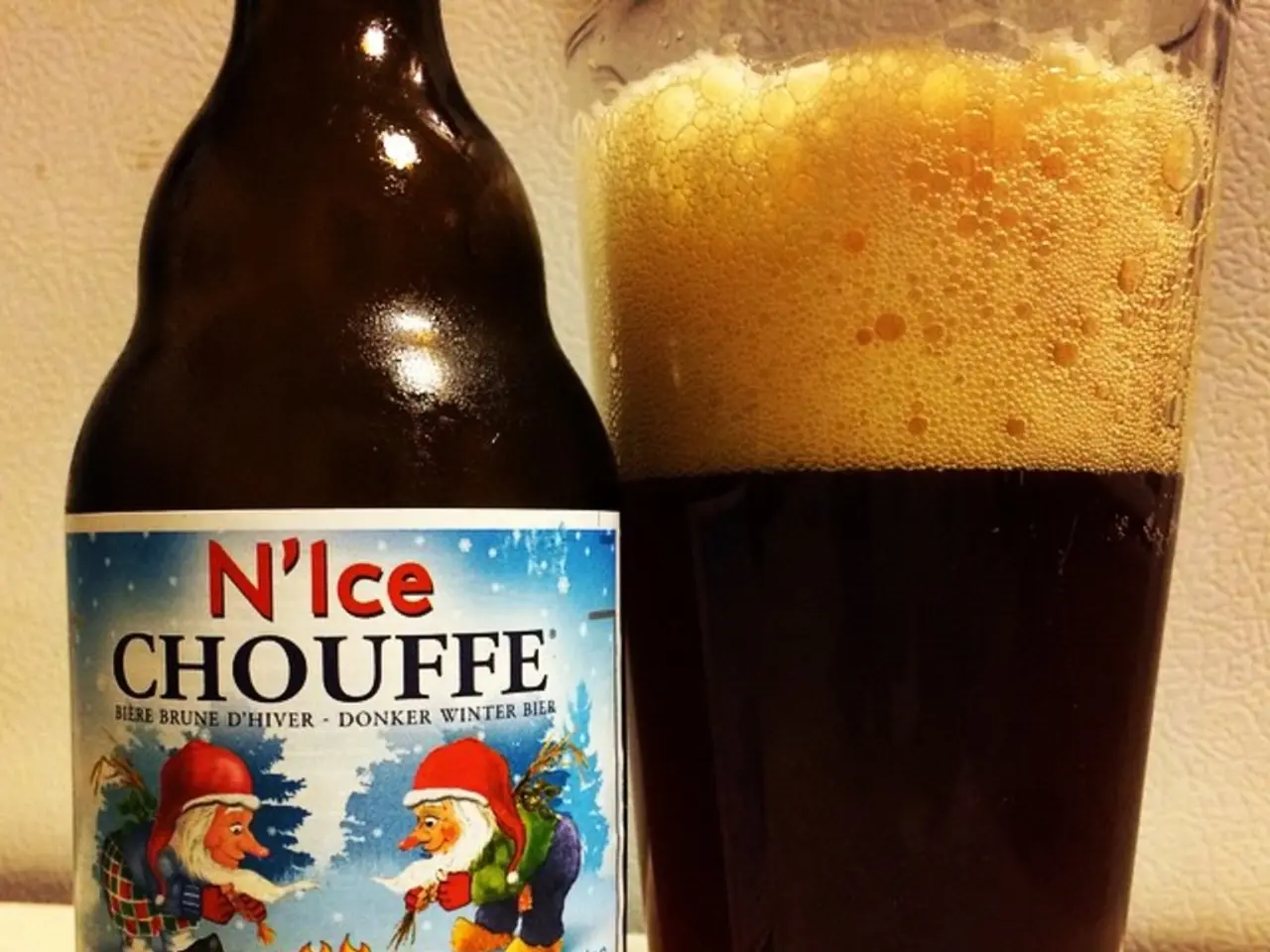German beer sales drop below four billion liters, hitting a new record low
In a striking turn of events, beer sales in Germany have plummeted to their lowest levels since records began in 1993, according to the federal statistics agency Destatis. The first half of 2025 saw a significant decline of 6.3% compared to the same period last year, with overall sales dropping to 3.9 billion liters.
This marked decline is reminiscent of the falls recorded at the start of the COVID-19 pandemic in the first half of 2020 and in the second half of 2023. The drop below four billion liters for the first time since 1993 is a clear indication of the challenging times faced by the beer industry in Germany.
The decrease in sales was primarily due to a fall in domestic demand, with sales by German breweries and beer warehouses dropping by 6.1% to 3.2 billion liters. Exports also took a hit, with sales to non-EU countries decreasing by 9.9% to 299.6 million liters, and sales to EU countries falling by 5.0% to 406.9 million liters.
Interestingly, sales of mixed beers bucked the trend, experiencing a rise of 8.0% in the first half of 2025 compared to the same period last year, totaling 220.8 million liters. However, these sales accounted for only 5.6% of the total beer sales.
The decline in beer sales is a multifaceted issue, with economic headwinds leading to cautious consumer spending, structural market changes, increased costs and taxation on the hospitality sector, global trade challenges, and ongoing demographic shifts impacting drinking habits all playing a role.
The hospitality sector, a significant driver of beer sales, is facing revenue drops, higher operating costs, and insolvencies. The reinstatement of a full 19% VAT on food and beverages in restaurants has further squeezed demand for beer consumption outside the home, as dining out has become less affordable. Inflation-adjusted sales in May 2025 dropped sharply, pointing to consumers' reduced discretionary spending power.
Long-term trends such as demographic shifts and changing preferences, including the growing popularity of non-alcoholic beer, also contribute to the structural decline in beer consumption in Germany. Production volumes have decreased slightly, and Germany has even been surpassed by Russia as Europe's largest beer producer in 2025, signaling broader industry challenges.
The Federal Statistical Office (Destatis) announced the significant decline in beer sales in Germany on Friday. As the industry grapples with these challenges, it remains to be seen how it will adapt and recover in the coming months.
- The decline in beer sales is not limited to Germany, as it mirrors trends observed in other retail sectors, with consumers showing more caution in their finance-related decisions.
- The challenging times faced by the beer industry in Germany are reflective of similar struggles faced by other sectors, such as finance and retail, due to economic headwinds, shifting demographics, and changing consumer preferences.




